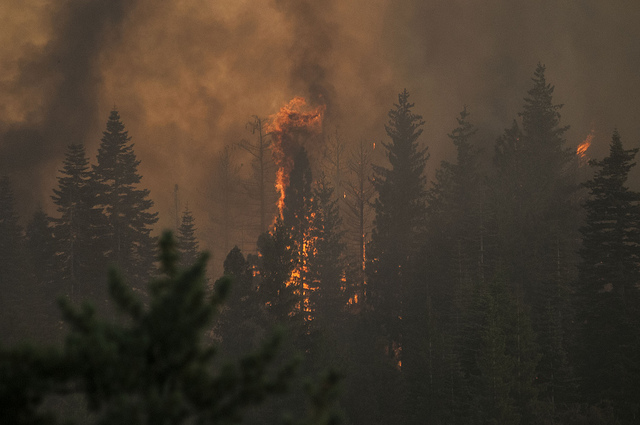A century of fire suppression means there are more trees to burn, and they burn more dramatically
This has been a devastating wildfire season. Nationwide, more acres have burned this summer than at this time in any other year on record. In May and June, New Mexico weathered the largest fire in its history. Hundreds of homes and tens of thousands of acres have burned in Colorado. As the summer wears on, fire season has moved west — as it tends to do — and now the Ponderosa Fire is raging near Redding.
Has it always been like this? A new NPR series by Christopher Joyce explores what a century of fire suppression has meant for forests in the Southwest.
By keeping forests from burning, the Forest Service has actually made them more susceptible to very large fires. Instead of more frequent brush fires, which help keep fuel to a minimum, now, when a forest begins burning, fires consume the ample fuel and are able to climb to the tops of trees, sweeping through thousands of acres. (Graphics in the second story in the series illustrate the difference.)
In addition to the video above and five radio pieces (the first two aired today), there’s a fire map that shows current large fires and fire conditions, and a series of photos showing the evolution of a forest where fire is suppressed.
Fire suppression is only a piece — though it’s a big one — of the wildfire puzzle. Beetles, disease, drought and logging are all in the mix, too. And then there’s climate change, which scientists project will bring more fires to the West — not just in the long-term, but within the next few decades.

